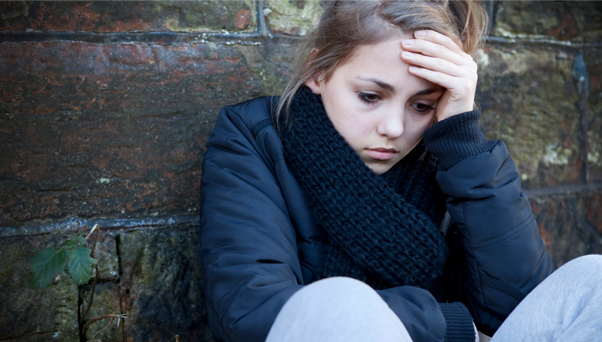
Een the most vigilant parent could mistake the warning signs. Mental health issues in young people can look at first like typical adolescent behaviour: sudden bouts of grumpiness or sadness, inability to concentrate or sleep, wanting to be alone.
Most teens will act like this at some point as their brains develop, bodies grow and their hormones fluctuate. After all, childhood is – as the Duchess of Cambridge said yesterday to launch the start of Children’s Mental Health Week (February 5-11) – “the time when we explore our personalities, discover the potential that lies within us and learn how to be ourselves.”
The Duchess added: “Our experience of the world at this early stage helps to shape who we become as adults, how we begin to feel comfortable in our own skin.”
It can also mark the time when we first experience mental health issues. According to the charity Young Minds, almost one in four children and young people show some evidence of mental ill health (including anxiety and depression) with one in 10 children having a diagnosable mental health disorder. Half of all mental health problems manifest by the age of 14.
However, these are often overlooked or missed. Jane Evans, a childhood anxiety and trauma expert, explains: “Often the first sign that something is wrong with a child is when they begin to withdraw – yet that can be difficult to pick up nowadays as so many young people are shut away behind screens, even when they are in the same room as you.”
Evans adds: “Watch out for when they lose interest in things they used to enjoy. That might be day trips they don’t want to go on or alternately they may start asking lots of detailed questions – who else will be there, how long will we stay? This is them vocalising their anxiety.”

She notes that children who are becoming anxious or depressed may have bigger than normal meltdowns when something small isn’t right – they haven’t got the right pen for school, say. Look out for under-reactions too, she says, when they stop caring about life.
Mental health issues can show up in the body. “If your child has stomach problems,” she says, “complains of feelings sick often, has headaches or pain in the neck or muscles, it can be a sign that they are in a state of constant tension. Repeat bladder infections and indigestion are indicators too.”
Jo Hardy, head of parent services at Young Minds, warns that it is not just those general and progressive declines in behaviour and mood that indicate illness. “Big events such as a bereavement can have a big impact on young people,” says Hardy. “It can be normal to be really upset; with time and perspective your child should recover.
“But if they lack the resilience to do that, it may trigger depression or anxiety.”
If you are concerned, your GP is the gatekeeper for all mental health worries, says Hardy. Young Minds also has a helpline and a useful set of downloads for parents.
She suggests checking in with your child’s school to see if their behaviour has also declined there and to help identify potential triggers such as bullying on or offline.
Evans adds: “I am a big believer in listening to your gut and not becoming too reliant on other’s opinions. You know your child and whether they are alright. Don’t be deterred by advice of the ‘They’ll grow out of’ variety. If a child is anxious at six, it’s unlikely they will feel less worried as they grow up. Life doesn’t get easier or less complex over time.” That’s especially true if your child is showing any signs of self-harming or mentions suicidal thoughts. “Take them straight to a doctor in this instance at once,” she says.
It’s worth noting that for many of us – despite the work of the Heads Together charity initiative to raise awareness – mental health issues still carry a stigma. It can be difficult to admit that your own child is affected as it raises the question of parenting competence.
Hardy says: “We hear from parents with children who are self-harming or refusing to go to school. They are at breaking point, holding out hopes things will somehow get better but not wanting to admit anything is wrong in case they are judged for it.”
“It is awful to have a child with this type of illness,” says Evans, “but you can’t wish it away. Instead, as a parent you can focus on being their best support and greatest champion. Find out what they need to know. Don’t sweep their health under the carpet out of embarrassment.”
Source :-Telegraph

Leave a Reply